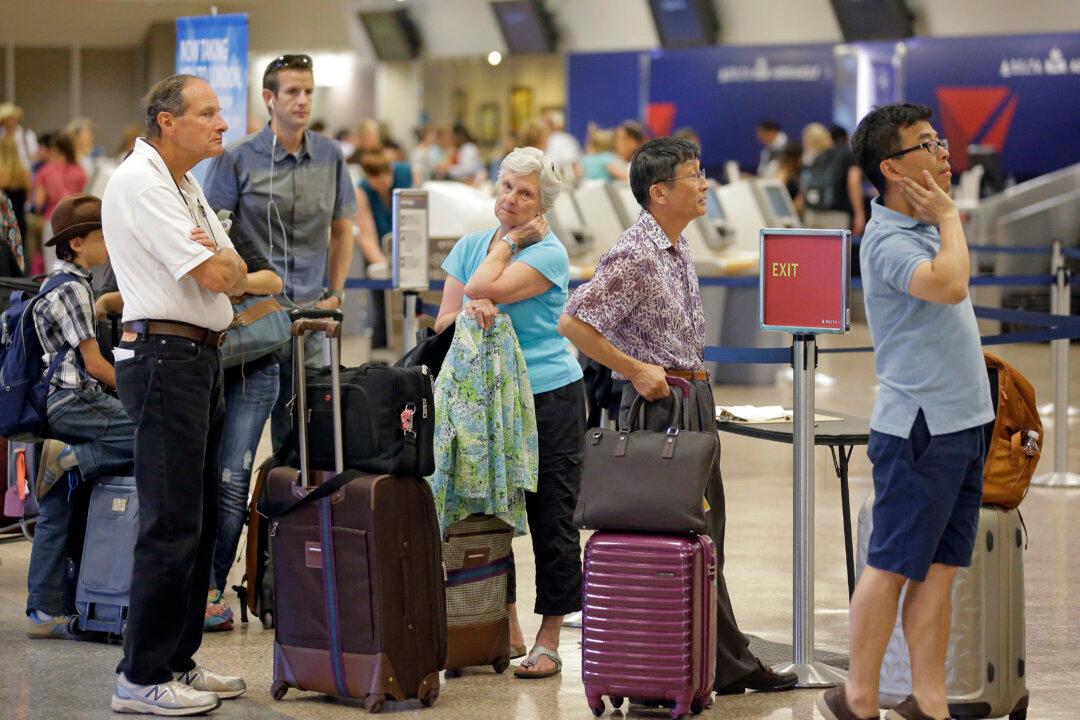Computer systems of Delta Air Lines Inc. have suffered a “glitch” that is causing flight delays on the airline globally. While the cause of the delays is still unclear, a group of cybercriminals was recently selling vulnerabilities of major airlines on the black market.
On Jan. 3, cybercriminals on a darknet black market run by Chinese state hackers published an advertisement for information and vulnerabilities in a long list of major airlines that included Delta Air Lines, United Airlines, Japan Airlines, FedEx, and others.
The advertisement was under the “Air Attacks Infrastructure” category, under the premium section of the online black market run by hackers who call themselves “Babylon APT.” The darknet is a large section of the internet accessible only by using specialized software, and while it has many benign uses, it is also home to several black markets.
The screenshot of the post was provided to Epoch Times several weeks ago by darknet researcher Ed Alexander, who runs the world’s largest known team of darknet cybercrime undercover investigators.
Alexander confirmed that the full list of airlines included Delta Airlines, but he noted this doesn’t necessarily mean the current outage is tied to the vulnerability posted for sale by the cybercriminals. “That is not to say that Babylon is not a part of it, but they certainly had some level of access,” he said.





